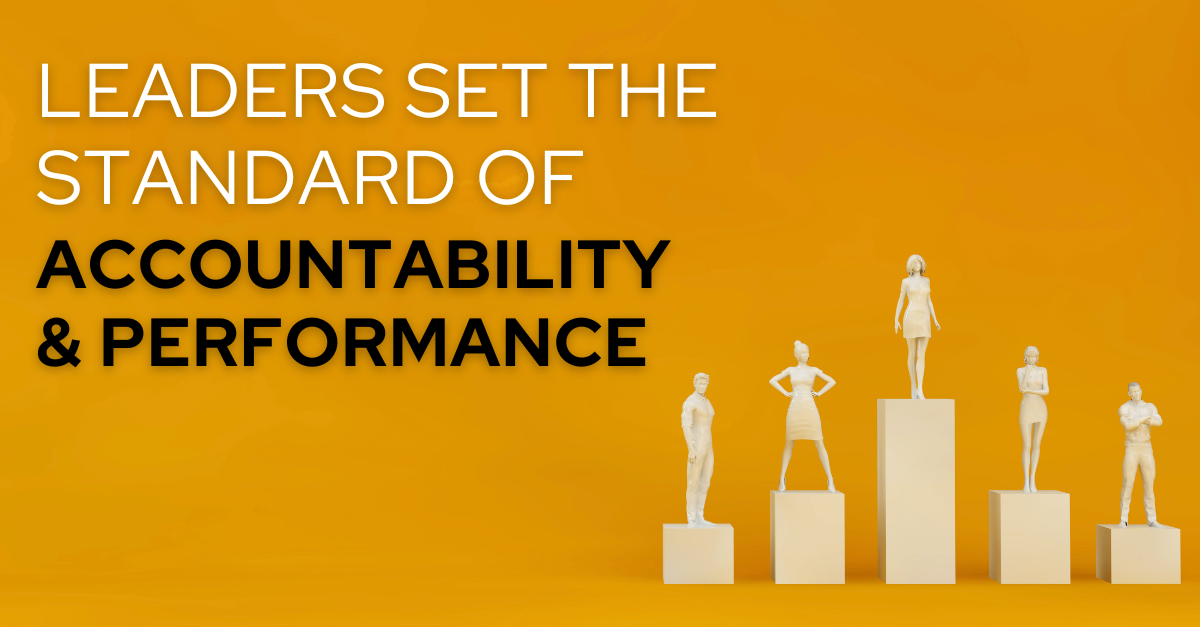With all that’s been written about leadership, it’s surprising how much misinformation exists on the subject. Leadership is not the mysterious cosmic force that it’s been made out to be. It isn’t an art, and it has little to do with charisma.
Before I share possibly the most succinct and complete definition of leadership I’m aware of, and a way to discover if you are a true leader, let’s first clear up what leadership isn’t.
The False Dichotomy of Management Versus Leadership
Social media posts are full of tables and infographics like the one below contrasting management with leadership.
Definitions that pit management against leadership like this are garbage. Like soda pop for the brain, this simple way of differentiating managers and leaders might taste good to consume, but in the end, it’s just empty calories.
This soda pop definition of managers versus leaders simply separates the operational activities of management from the strategic. At worst these caricatures demonize the term “manager,” making it synonymous with “bad leader.” Consequently, the word “manager” has become something of a repugnant term in modern business literature.
The soda pop definition of management and leadership promotes three false notions.
- Managers and leaders are on opposite ends of the same spectrum. They’re not. CEOs VPs, directors and managers are all management positions.
- The CEO is the visionary strategic thinker and is therefore excused from being disciplined, organized, and aware of the details. This, again, is false. People who are disorganized and chaotic inevitably create disorganized and chaotic organizations. This, by definition, is the opposite of what an “organization” is supposed to be. Good leaders are also good managers.
- Being an executive means you’re a leader. I get an involuntary twitch in my neck when I hear senior management teams refer to themselves as “senior leadership teams.” When I hear this, I picture Napoleon crowning himself emperor. You can’t designate yourself a leader. Your position in the hierarchy has nothing to do with leadership. You are only a leader when others willingly follow you because they trust and respect you, not because they fear the consequences of not doing so. When organizations use the terms “executive” and “leader” interchangeably, people begin to believe that leadership is a position reserved for only a few. This notion is categorically false.
You are only a leader when others willingly follow you because they trust and respect you, not because they fear the consequences of not doing so.
Management is a position. Leadership is how one chooses to influence others. They are apples and oranges, so let’s stop comparing them. The question isn’t about the difference between management and leadership. What we’re really talking about is the difference between how people choose to influence others to achieve the desired results.
Two Methods of Influence
There are basically only two ways people can influence others.
- Coercion: This occurs when someone in authority uses positional power to obtain the compliance of others by controlling their outcomes, such as determining their compensation, benefits, work assignments, and working conditions. People do what those in authority want them to do because they are incentivized to do so.
- Leadership: This occurs when people voluntarily choose to follow someone else. People do what leaders want them to do because they trust and respect their leader.
Leadership is the skill of getting others to move in the right direction without coercing them. Any time someone leans on their formal authority to get compliance, they cease to be a leader.
Leaders Care About People and Results
People in leadership positions who are primarily concerned with getting results tend to rely on coercion to get those results. Leaders, on the other hand, care as much about the people they lead as they do about achieving the desired results. Leaders demonstrate that employment is a contract and a relationship. The contract is the exchange of value—labor for money. The relationship is about how employees feel about their work, their boss, and the organization that employs them.
People don’t decide how hard to work or when to quit based on the stated or implied employment contract. Human beings make decisions based on their feelings and simply refer to facts to justify their decisions. This is why the relationship portion of employment is as important, if not more important, than the details of the stated or implied employment contract. True leaders have a dual focus on people and results—the relationship and the contract.
Leaders care as much about the people they lead as they do about achieving results.
Leadership Defined
Leadership is about helping others reach their potential while also ensuring that the team achieves its goals. If we distill this observation down to its simplest form, we are left with the following definition of leadership.
Leaders elevate others to achieve a common goal.
Based on this definition, who can be a leader? Is the title of “leader” reserved only for the heads of companies or other organizations? Must one be an executive to be a leader? The beautiful truth of leadership is that anyone can be a leader if they want to. Leadership begins with caring about people and results. The rest is learnable.
The Litmus Test of Leadership
How can you know if you are truly a leader as opposed to someone who simply occupies a leadership position? The answer to this question can be found in the analysis of the definition of leadership. Let’s take a closer look at the key elements of leadership.
- Elevate others. Leaders elevate others by helping them discover and enhance their strengths, encouraging them to exercise their agency, and by building their confidence in their abilities. Like parents, leaders make personal sacrifices to help others reach their potential. This includes sacrificing their time, ego, and status, restraining their impulses, and inconveniencing themselves to make a difference in someone else’s life.
- Positive change. True leaders bring out the best in people and inspire positive change. Terrible leaders bring out the worst in people and inspire negative change. Positive change is motivated by a desire to build a better future without causing harm to others. In contrast, negative change is motivated by fear, revenge, greed, and selfishness and usually ends up benefiting some and hurting others.
- Achieve a common goal. Inspiring people to act is only half of the equation. Leaders mobilize others to realize a worthy goal that one person alone cannot achieve. Followers are willing to do what it takes to achieve the common goal primarily because they are inspired by: a) the goal itself, b) their leader’s character (not to be confused with charisma), and c) their leader’s care for them.
These three elements of leadership—elevate others, positive change, and achieve a common goal—combine to produce willing followers. Therefore, the litmus test of leadership is the answer to this question:
Would anybody willingly follow me if they weren’t being paid to do so?
Based on this test, how many people in positions of authority are really leaders?
The above definition and test of leadership may sound like the ideal because it is so far from the norm, but this is how true leadership works, and it is possible. Maya Angelou famously wrote, “I’ve learned that people will forget what you said, people will forget what you did, but people will never forget how you made them feel.” How did she learn this? Angelou worked with Martin Luther King Jr. as a civil rights activist and fundraiser. King inspired Angelou to adopt and achieve his dream because, in her words, “He was a prince of peace” and dispensed “a comfort of courtesies while trying to make wrong right.” On another occasion she said of King, “He had no arrogance at all. He had a humility that comes from deep inside.” King’s influence undoubtedly elevated Angelou to reach a potential she likely wouldn’t have dared imagine before meeting him.
Abraham Lincoln’s biographer wrote that “The powerful competitors who had originally disdained Lincoln became colleagues who helped him steer the country through its darkest days.” Edward Bates was one of Lincoln’s rivals for the presidency. Lincoln eventually appointed him as attorney general. Even Bates, who initially viewed Lincoln as a well-meaning but incompetent administrator, eventually concluded that Lincoln was an unmatched leader, “very near being a perfect man.”
Fortunately, you don’t have to be perfect to be a leader. You simply need to care deeply about people and results.
Discover how to demonstrate that you care deeply about people and results by learning three powerful accountability habits in my new book: How Leaders Can Inspire Accountability.








3 Responses
I like it
Great arrival as usual
Perfect!